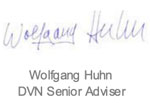Some days ago, I had an appointment with Professor Khanh, of my alma mater TU Darmstadt, under strict Covid rules. What a difference to pre-pandemic normal times! The whole university was very quiet. No groups of young people all around, no chatting, no one having a coffee together in the sunny park close by, all restaurants closed. The doors to the University buildings were locked up. To enter you have to ring a remote bell and hope someone hears you to let you inside the institute and of course you have to wear a medical mask.
Professor Khan has a little video studio on his working desk with a huge high-quality microphone. This is the place where he records all his lessons. The students get information about new lessons in the University system and hear them whenever they want. All examinations are oral ones in a direct video connection. Prof. Khanh offers two lighting lessons, basics and solid-state lighting (SSL). The electrical engineering department in total has a bit more than 400 students in the beginning of the studies and about 200 to 250 persons who finish with a bachelor’s or master’s degree. The number of beginners is decreasing year by year in the classical engineering disciplines, like mechanical and electrical engineering. Major increases are happening in informatics and especially artificial intelligence. The universities have to adapt and to change their structures and resources. You can imagine how this is a painful process.
I personally think the automotive industry needs to take a clear position as to which engineering qualifications are needed in future. Yes, of course we need a lot of AI experts, but we could be short of young academics in the medium-term in the classical fields. The field of lighting itself seems to be very attractive. 40 students, mainly from electrical engineering and physics, have chosen professor Khanh’s lectures this year. The importance of lighting technology in Darmstadt is gratifyingly high.

